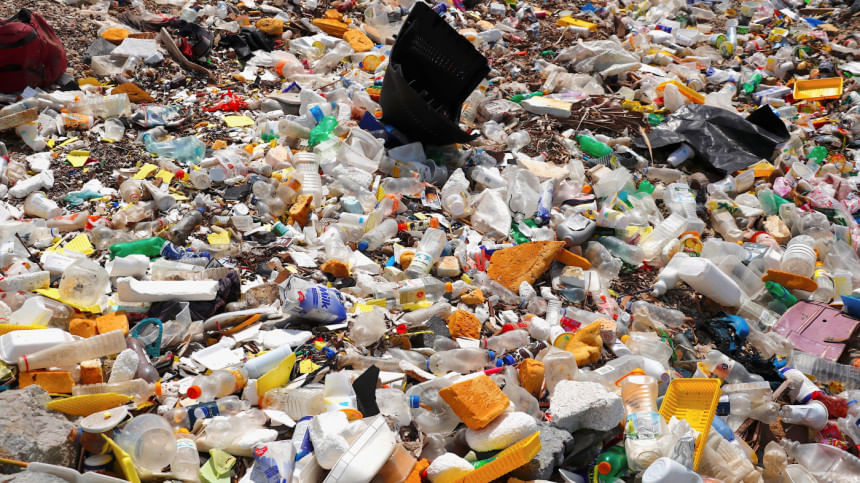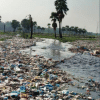The world is squandering its plastics treaty moment

It was close to midnight in Geneva when the gavel finally came down. After two gruelling weeks of negotiations, delegates walked out of the Palais des Nations with nothing to show—no draft treaty, no roadmap, only exhaustion and disillusionment. This is not how the world was supposed to confront plastic pollution.
For years, the United Nations has promised a legally binding global agreement to end the plastic crisis. Geneva's latest round of talks, held from August 5 to August 15, was meant to deliver progress. Instead, it ended in paralysis. The world's most ambitious environmental negotiation has been reduced to brackets in a draft and deepening fractures between nations.
At the core lies a battle of worldviews. The "high-ambition coalition," led by Rwanda and Norway, insists on cutting plastics at the source: capping virgin plastic production, regulating toxic additives, and enforcing international design standards. Without this, they argue, recycling is a bandage on an open wound. On the other side, producer nations such as the United States, Saudi Arabia and Russia reject any limits on production. For them, the treaty should focus narrowly on recycling, waste management and national solutions. Their message is blunt: touch production, and you touch our economies. Both sides cannot be right. If production continues to soar, set to nearly triple by 2060, no recycling system will keep pace. Already, less than 10 percent of plastics are recycled, while 11 million tonnes leak into oceans each year. Microplastics now appear in our blood and lungs. Pretending that better waste bins alone will solve this is wishful thinking.
Politics is only half the problem. The other half is process. Negotiators are trapped under provisional rules that require unanimity. One or two dissenters can block progress for everyone. Without a mechanism for voting, the loudest refusers dictate the outcome. This is not consensus, it is paralysis. Other environmental treaties survived tough votes. Plastics must too.
Every wasted round makes the treaty weaker and the crisis worse. Plastics are already responsible for 3.4 percent of global emissions. By 2040, that share could rise to nearly a fifth. Cleanup costs run into billions. And the longer negotiators drag their feet, the higher the human and ecological toll will climb. The science is clear, the solutions are known, and the stakes could not be higher. What is missing is political will.
There is still a landing zone. Voting rules could unblock the process. A global package deal could combine reduction targets, chemical controls, and design-for-circularity standards with a dedicated plastics fund for developing nations. Annexes could keep technical details flexible without reopening the treaty every time. And if the full committee cannot move, a coalition of ambitious states could go ahead, setting standards now and docking into a future UN treaty later.
Geneva's failure does not mean the plastics treaty is doomed. But unless leaders, especially Washington and Beijing, move beyond narrow interests, the dream of a global agreement will never be actualised. The oceans will not wait, neither will the atmosphere, nor our children's bodies already carrying microplastics. Every day of delay means more waste, more emissions, more irreversible damage. The world must decide: do we want a treaty that transforms, or one that tinkers at the margins? Because the tide of plastic will not stop itself.
Dr Shahriar Hossain is an environmental scientist, journalist, and social justice advocate. He can be reached at [email protected].
Views expressed in this article are the author's own.
Follow The Daily Star Opinion on Facebook for the latest opinions, commentaries, and analyses by experts and professionals. To contribute your article or letter to The Daily Star Opinion, see our guidelines for submission.

 For all latest news, follow The Daily Star's Google News channel.
For all latest news, follow The Daily Star's Google News channel. 










Comments